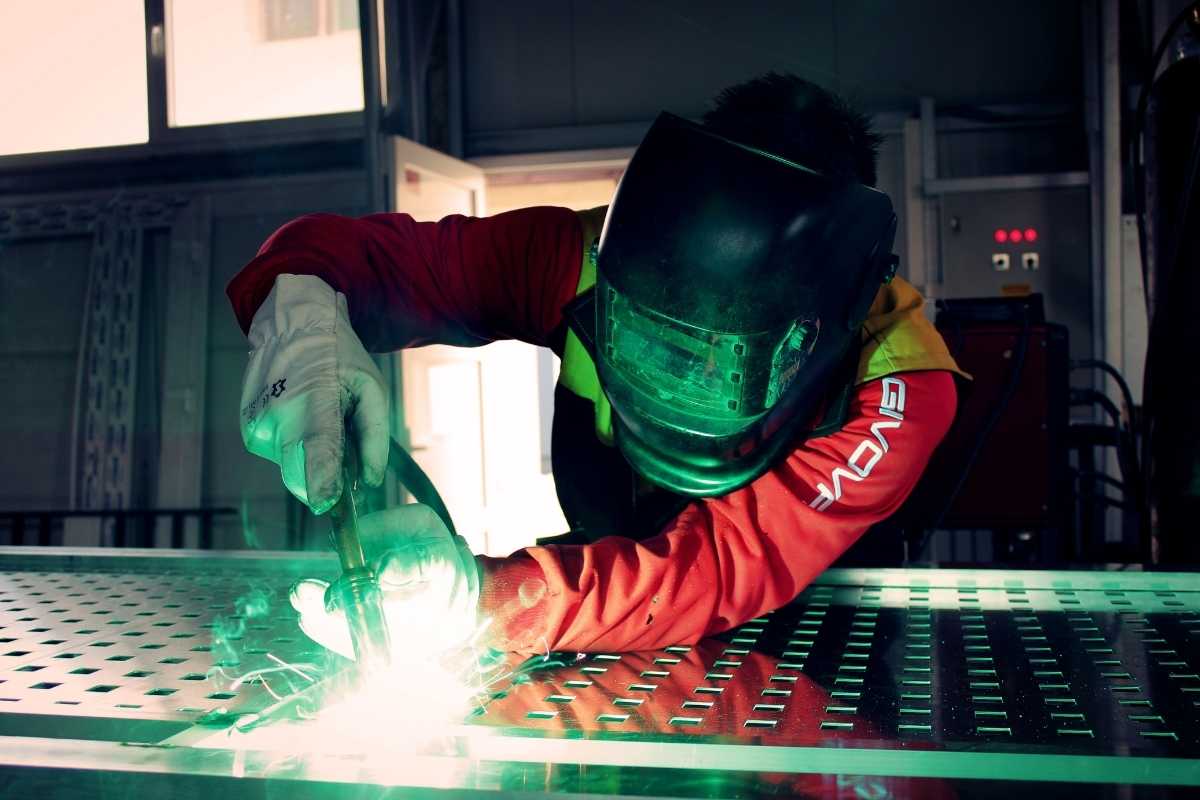In this article we will discuss:
- Why we need a skilled workforce now more than ever
- Examples of trades in need of workers
- How to enter the workforce and receive training
Why do we need a skilled workforce now?
While new skilled workers are always in demand, the labor shortage occurring now is affecting trades more than before. Some reasons for this are:
- Workers are retiring: 27% of skilled workers are within 10 years of the social security retirement age (SIA 2021). With just over a quarter of the skilled workforce gearing up for retirement, it is important to have trained professionals prepared to replace them.
- Home service requests have increased since the COVID-19 pandemic: As people spend more time at home, the desire and need for home services has increased. Whether it be a family deciding to remodel their home, increased wear and tear on appliances, or just a finer attention to details that need fixing, tradesmen are needed for home improvements.
- Baby boomers are in need of healthcare assistance: As boomers retire and grow older, the need for workers in the healthcare industry increases. This includes all aspects of the healthcare industry, not just doctors and patient-facing jobs. Some of these jobs include administrative work such as medical billing and coding specialists or pharmacy technicians.
- Population growth: Population growth and the migration of people to different areas of the United States means that more skilled workers and tradesmen are necessary. Different regions especially are becoming more popular and in need of skilled workers. This could mean that your specific area is in need of certain skills or it opens up the opportunity to move to an area that requires skilled tradesmen.
What skilled trades are in need of workers?
In short, most of them. Now is a great time to choose a career you’d like to have and pursue it. In fact, job satisfaction in skilled trades is fairly high, with 83% of workers feeling fulfilled with their career (SIA 2021). This is huge considering many people leave their jobs due to a lack of job satisfaction or ability to progress in their field.
There are many ways to start a career in trades. The first step is to decide what profession you would like to pursue. Some examples of different trades you may train for are:
- Welding – Engaging in welding training will help you prepare to become certified and work for commercial, industrial, and small business environments. Every welder must take a written certification from the American Welding Society (AWS). Past that, the requirements are different for state licenses. Welding is a great trade to enter to work hands-on in a creative environment.
- Electrician – Becoming an electrician opens the door for many different types of electrical jobs. To become an electrician, you must work underneath a Master Electrician for a certain number of hours depending on the level of work you’re interested in. While putting in the apprenticeship hours, it might be wise to enroll in a training program to assist you in gaining knowledge and hands-on hours.
- HVAC – Most new builds and home renovations include some sort of heating and cooling system. Past that, all homes have some sort of ventilation system. HVAC technicians install, troubleshoot, and work with all things ventilation. It might be a trade that is overlooked, but it can be lucrative and satisfying as a job. While certifications are not necessary to become an HVAC technician, having them can give you a competitive edge when looking for an entry-level position.
- CDL-A – If you like hitting the road, you may want to consider getting a CDL. As a Licensed CDL-A Driver, you can drive across the country or stay in town, depending on your employer. Becoming a Licensed CDL-A Driver is relatively quick in terms of a trade education. Most CDL programs can be completed in less than two months.
- Auto technician – Becoming an auto technician is a good way to mix passion with your career. Having an interest in cars and machines is the first step to a fulfilling career as an automotive technician. While licensing or certification is not necessary to become an automotive service tech, you may want to look into a training program if you are not an expert of the trade.
How to start a medical career
Within the healthcare industry lies the potential to pursue many different careers. Do you want to work directly with patients or focus on administration? What level of training would you like to commit to? All of these factors should be taken into account when deciding what type of medical career you might start. Some examples of different medical careers you can train for are:
- Pharmacy technician – Pharmacy technicians, unlike physicians or pharmacists, do not require 6 to 8 years of schooling. Instead, you can train for and sit for the Certified Pharmacy Technician exam at a trade school. This is a great route to take if you want to work in a pharmacy without attending medical school.
- Medical assistant – If you’d like to work hands-on with patients, medical assisting may be a good career choice for you. Medical assistants work directly with patients doing things such as monitoring EKGs, pharmacology, and providing clinical care. With a certified training program, you can have the opportunity to become certified as a phlebotomist, EKG technician, and more. Most of these programs can be completed in less than a year!
- Nurse aide – Nurse aides also work with patients directly, but they usually work more as caregivers or hospice nurses. If these careers call to you, you can join a program that will train you on the skills you need to become a Certified Nurse Aide.
- Medical office specialist – Maybe you want to work in the healthcare industry, but are more interested in the administrative side of operations and less interested in patient-facing care. As a medical office specialist, you have the responsibility of managing a medical office. You can be eligible for a career as a medical office specialist after testing to become a Certified Medical Administrative Assistant.
SCI
Whether you want to work hands-on as a welder or auto technician, behind the scenes as an administrative assistant, or directly with patients in the healthcare industry, SCI offers training to support you on your journey. With eight campuses in Texas along with online programs, it is SCI’s mission to provide employer-tailored programs to students. To learn more about the programs, start dates, and financial aid, click here.
References
N.A. “Skilled Trades: Job Satisfaction High But Labor Shortage Worsening” Staffing Industry
Analysts. 2021. https://www2.staffingindustry.com/Editorial/Daily-News/Skilled-trades-Job-satisfaction-high-but-labor-shortage-worsening-59116.











